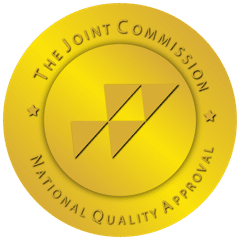Navigating the path towards recovery from drug addiction can be a challenging journey, often requiring comprehensive support and guidance. In Orange County, Choosing the Right Inpatient Drug Treatment Center inpatient drug treatment facilities offer a beacon of hope for individuals seeking to break free from the chains of addiction.
This exploration delves into the myriad benefits of inpatient drug treatment, illuminating the advantages of structured environments, personalized care plans, and holistic approaches to healing. As we delve deeper into understanding the factors for selecting the right rehab facility and evaluating options in Anaheim, we embark on a journey towards lasting sobriety and well-being.
The Benefits of Inpatient Drug Treatment
Inpatient drug treatment in Orange County, offer a range of benefits that significantly contribute to their effectiveness in helping individuals overcome addiction. Let’s explore some of the key advantages:
1. 24/7 Medical and Emotional Support
One of the most significant benefits of inpatient drug treatment is the round-the-clock medical and emotional support provided by trained professionals. Qualified healthcare staff are available to monitor and manage any potential withdrawal symptoms, ensuring the safety and well-being of patients throughout their recovery journey. Additionally, therapists and counselors offer emotional support and guidance, helping individuals address the underlying causes of their addiction.
2. Structured and Controlled Environment
Inpatient rehab centers provide a structured and controlled environment that minimizes external triggers and distractions. By removing individuals from their familiar surroundings and routines, inpatient treatment allows them to focus solely on their recovery. This controlled environment promotes self-reflection, personal growth, and the development of healthy coping mechanisms.
3. Comprehensive and Individualized Treatment Plans
Inpatient drug treatment centers tailor treatment plans to meet the unique needs of each individual. A team of medical professionals and addiction specialists assesses each patient’s condition and creates a personalized treatment plan that addresses their specific addiction, mental health, and medical requirements. This individualized approach maximizes the chances of successful recovery.
4. Peer Support and Community
Inpatient rehab programs provide an invaluable sense of community and peer support. Individuals undergoing treatment can connect with others who are facing similar challenges, fostering a supportive environment where they can share experiences, provide encouragement, and learn from one another. Peer support plays a vital role in maintaining motivation and accountability throughout the recovery process.
5. Holistic Approach to Recovery
Inpatient drug treatment centers often adopt a holistic approach to recovery, addressing not only the physical aspects of addiction but also the emotional, mental, and spiritual well-being of individuals. Alongside evidence-based therapies, such as cognitive-behavioral therapy (CBT) and dialectical behavior therapy (DBT), holistic treatment may include practices like yoga, meditation, art therapy, and nutritional counseling. This comprehensive approach ensures a well-rounded recovery experience.

Factors for Choosing the Right Inpatient Rehab Facility
Now that we’ve explored the benefits of inpatient drug treatment, let’s discuss the essential factors to consider when selecting an inpatient rehab facility in Anaheim. Making an informed decision will greatly enhance your chances of successful recovery. Here are the key factors to evaluate:
1. Treatment Programs and Approaches
Consider the treatment programs and approaches offered by each rehab center. Look for a facility that provides evidence-based therapies and a variety of treatment modalities. Effective programs often combine individual counseling, group therapy, family therapy, and specialized therapies tailored to specific addictions or co-occurring disorders. A comprehensive approach to treatment increases the likelihood of successful recovery.
2. Medical and Mental Health Services
Ensure that the inpatient rehab center has a team of qualified medical professionals and mental health experts. Addiction treatment often requires medical interventions, especially during the detoxification process. Additionally, individuals with co-occurring mental health disorders, such as depression or anxiety, should have access to integrated dual diagnosis treatment.
3. Staff Qualifications and Expertise
Evaluate the qualifications and expertise of the staff members at each rehab facility. Look for centers that employ licensed therapists, counselors, and medical professionals with experience in addiction treatment. The expertise of the staff greatly influences the quality of care and the effectiveness of the treatment provided.
4. Aftercare and Continuum of Care
Recovery doesn’t end with completing an inpatient drug treatment program. It’s essential to choose a rehab facility that offers comprehensive aftercare services and a continuum of care. Aftercare programs may include outpatient therapy, support groups, alumni networks, and relapse prevention planning. A strong aftercare plan significantly contributes to maintaining long-term sobriety.
Criteria for Selecting an Inpatient Treatment Center
When choosing an inpatient treatment center, several key factors should guide your decision-making process. Firstly, consider the location and environment, weighing preferences for proximity to home against the potential benefits of a change in surroundings. Assessing amenities and comfort levels is crucial in ensuring a conducive environment for recovery.
Secondly, evaluate the duration and flexibility of treatment programs, seeking options that cater to individual needs and allow for customization. Understanding insurance coverage and exploring payment options is essential to manage financial aspects effectively.
Lastly, consider the level of family involvement and support offered, as well as researching success rates and alumni testimonials to gauge the center’s reputation and effectiveness. These considerations collectively inform the selection of the most suitable inpatient treatment center for achieving successful rehabilitation.

Evaluating Options for Inpatient Drug Rehab in Anaheim
Now that we’ve covered the key factors, criteria, and in-depth considerations for selecting an inpatient rehab facility, let’s focus on evaluating options specifically in Anaheim, California. Anaheim offers a range of reputable rehab centers, including Lift Off Recovery, which is dedicated to helping individuals overcome addiction and achieve lasting recovery.
About Lift Off Recovery
Lift Off Recovery is a leading inpatient drug treatment center located in Anaheim, California. With a team of highly qualified professionals, Lift Off Recovery offers evidence-based treatment programs tailored to meet the unique needs of each individual. The center’s holistic approach to recovery encompasses physical, emotional, and spiritual well-being.
Lift Off Recovery understands the importance of selecting the right inpatient rehab facility. They prioritize the following key factors to ensure the effectiveness of their treatment programs:
- Accreditation and Licensing: Lift Off Recovery is fully accredited and licensed, guaranteeing the highest standards of care.
- Comprehensive Treatment Programs: Lift Off Recovery offers a range of evidence-based therapies, including individual counseling, group therapy, and holistic modalities.
- Qualified and Experienced Staff: The center’s team consists of licensed therapists, counselors, and medical professionals with extensive experience in addiction treatment.
- Strong Aftercare Support: Lift Off Recovery provides comprehensive aftercare planning, including outpatient services, support groups, and relapse prevention programs.
- Positive Reviews and Testimonials: The center has a proven track record of successful outcomes and receives positive reviews from alumni and their families.
By considering these factors, Lift Off Recovery ensures that individuals receive the highest quality care and support throughout their recovery journey.
Finding the Best Inpatient Rehab Facility
When searching for the ideal inpatient rehab center in Anaheim, prioritize your specific treatment goals and preferences. Begin by evaluating whether detoxification, dual diagnosis treatment, or specialized therapies are necessary, ensuring alignment with the center’s offerings. Conduct thorough research on various facilities, considering treatment programs, amenities, and success rates using online resources and direct inquiries. Seek guidance from healthcare professionals or addiction specialists to narrow down options and make an informed decision. If possible, visit prospective centers to assess facilities, meet staff, and trust your instincts to choose a center where you feel comfortable and supported, facilitating a successful recovery journey in Anaheim.
Learn to Choose the Right Inpatient Drug Treatment Center in Anaheim
Inpatient drug treatment in Anaheim, California, offers numerous benefits for individuals seeking to overcome addiction. By selecting the right rehab facility, you can access 24/7 support, a structured environment, personalized treatment plans, and a strong sense of community. When choosing an inpatient rehab center, consider factors such as accreditation, treatment programs, staff qualifications, aftercare support, and success rates.
Lift Off Recovery, a reputable inpatient drug treatment center in Anaheim, prioritizes these factors to ensure the effectiveness of their treatment programs. By considering important considerations, conducting research, seeking professional guidance, and trusting your instincts, you can find the best inpatient rehab facility in Anaheim to embark on your journey to lasting recovery. Reach out with us today for assistance in finding the right program to support your path to recovery and well-being..

Q1: What are the benefits of choosing residential treatment for drug addiction?
Residential treatment offers 24/7 support, structured environments, personalized treatment plans, and a strong sense of community, enhancing the chances of successful recovery.
Q2: What medical and mental health services should a residential rehab center provide?
A residential rehab center should offer qualified medical professionals, integrated dual diagnosis treatment, and comprehensive aftercare planning to ensure holistic care for patients.
Q3: Why is the experience and qualification of staff important in a residential treatment center?
Experienced and qualified staff members play a crucial role in providing quality care, personalized treatment, and effective support throughout the recovery journey.
Q4: What factors should be considered when selecting a residential treatment center?
When choosing a residential treatment center, it’s essential to evaluate treatment programs, staff expertise, aftercare support, and success rates to ensure the best possible outcome for recovery.
Q5: How does residential treatment promote a structured and controlled environment?
Residential treatment removes individuals from familiar surroundings and routines, minimizing external triggers and distractions, and allowing them to focus solely on their recovery in a controlled environment.
Q6: What makes peer support and community involvement essential in residential treatment?
Peer support and community involvement provide individuals with encouragement, shared experiences, and accountability, fostering a supportive environment that promotes motivation and long-term recovery.
Q7: What role does a holistic approach play in residential treatment programs?
A holistic approach addresses the physical, emotional, mental, and spiritual aspects of addiction, offering a comprehensive treatment experience that promotes overall well-being and personal growth.
Q8: How do personalized treatment plans contribute to successful recovery in residential treatment?
Personalized treatment plans cater to the unique needs and challenges of each individual, ensuring that they receive tailored care and support that maximizes their chances of overcoming addiction.
Q9: What types of therapies are commonly offered in residential treatment programs?
Residential treatment programs often include a variety of evidence-based therapies such as cognitive-behavioral therapy (CBT), dialectical behavior therapy (DBT), group therapy, family therapy, and holistic modalities like yoga and meditation.
Q10: Why is aftercare support important in residential treatment for drug addiction?
Aftercare support ensures continuity of care and helps individuals maintain their sobriety after completing the residential treatment program, providing them with ongoing support, resources, and guidance for long-term recovery.





